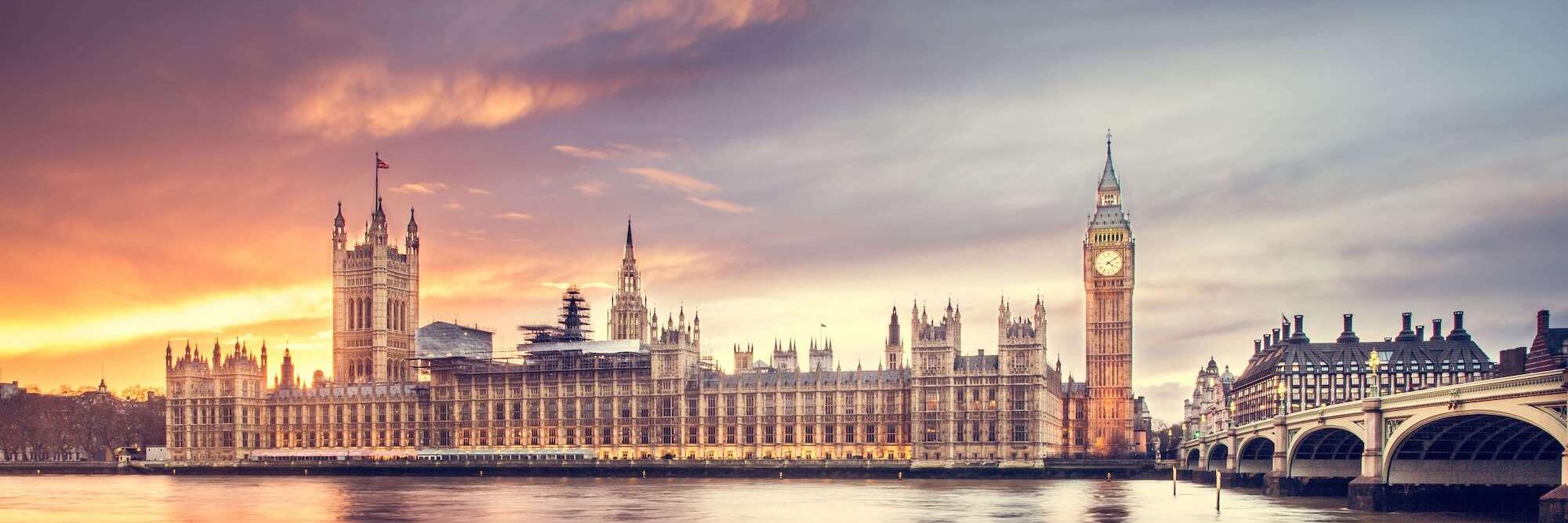Kimberley Mueller is an American expat who moved to London in September 2014 after spending most of her life in New York and Washington. While she acknowledges having to make some small adjustments when moving from the USA, the pros of efficient public transport, opportunities to travel around Europe and the diverse local community have more than made up for what she misses about home.
Find out more about expat life in the UK in the Expat Arrival’s London City Guide or by reading more expat experiences in the UK.
 About Kimberley
About Kimberley
Q: Where are you originally from?
A: I was born, raised, and attended university in New York in the United States of America, although most of my post-graduate and adult life was spent in the Washington DC metropolitan area.
Q: Where are you living now?
A: London, United Kingdom
Q: When did you move to the UK?
A: September 2014
Q: Did you move to London alone or with a spouse/family?
A: I moved with my spouse and young daughter.
Q: Why did you move? What do you do in London?
A: I accompanied my husband on an international assignment for a US federal agency, which he selected for shortly after my professional marketing position in the US was eliminated. I have subsequently taken a business development consultant position with a tech start-up in the UK.
Living in the United Kingdom
Q: What do you enjoy most about London? How would you rate the quality of life compared to the USA?
A: There are so many things that I enjoy about London! Urban living, public transportation, the ease of travel to other countries, and the diversity of the people we meet and socialise with, just to name a few. My quality of life and that of my family is as good as or better than our home country would offer us at this time.
Q: Any negatives? What do you miss most about home?
A: Negatives are generally remedied by asking the right questions and finding the “things” (including foods) we’re missing from home. Walking almost everywhere does offer its challenges – concrete cities are rough on the feet and on one’s footwear!
Q: What are the biggest adjustments you had to make when settling into expat life in the UK? Did you experience any particular elements of culture shock?
A: Standard kitchen appliance size and doing laundry was a surprise, but we made adjustments like more frequent shopping, smaller, more frequent loads, etc.
Q: What’s the cost of living compared to in the USA? What is cheap or expensive in particular?
A: It’s interesting what can cost more and what costs less. The lifestyle we have chosen to live in London overall is more costly than our life in a DC suburb, so we offset the cost of eating out, socialising, taking trips and taking in sites by minimising clothing and household purchases – there is no room in our flat for all of that anyway! Our living space footprint is significantly smaller than that of our home in the US.
Q: How would you rate the public transport in London? What are the different options? Do you need to own a car?
A: We joke about whether we need a car quite often. Having sold all our automobiles before moving here, we challenged each other to see how long each could hold off before buying a car here. So far, neither of us has given in, and we have managed to avoid that purchase with an annual Oyster, knowing our bus and underground routes, using Uber and Black Cab as necessary and subscribing to and using the occasional Zip car. We rate the public transportation very high, and so we will probably forego auto ownership the entire time that we are here.
Q: How would you rate the healthcare in London? Have you had any particularly good/bad experiences with regard to doctors and hospitals? Are there any hospitals you would recommend?
A: I am fascinated with the National Health System, and I’m eligible to register for a number and benefit from these services. Since arrival, I have had occasion, however, to receive services privately through Wellington Hospital. I would recommend the facility – I was treated well, with compassion and professionalism. Billing and insurance was a different experience than home, but that’s to be expected. It has also been my experience that pharmacies and over-the-counter remedies can have different procedures and formulas, respectively…something to consider if you are an expat with a pre-existing condition and prescriptions.
Q: What are the biggest safety issues facing expats living in London? Are there any areas expats should avoid?
A: I am of the opinion that London doesn’t pose any greater threat than any other metropolitan city, where there is a unique opportunity for crime and a host of people to commit it. One should remain aware of their surroundings and their possessions regardless of their location. Rush hour congestion can pose a safety concern every day – Travellers/commuters need to pay particular attention to the opposite side of the street traffic patterns, bike lanes, zebra crossings, underground platform crowds, etc.
Q: How do you rate the standard of housing in the city? What different options are available for expats?
A: Housing can vary tremendously based on the age of rental units, individual ownership, availability, location, amenities, services and of course, cost. Of those in my social circles, many are provided housing as a benefit of their employment, limiting their choice in all the variables I’ve listed. Housing location is decided by a committee based on some suggestions from each family but mostly based on price point, proximity or travel to an office assignment, historical relationships with landlords, size of the unit compared to the size of the family, pet concerns, etc. We are thrilled with the location, gardens and balcony spaces, security/porter, cleanliness, storage and proximity to shopping and services of the unit chosen for us, but we have encountered others that are not equally pleased and have had specific safety and maintenance issues to be addressed.
Q: Are there any areas/suburbs of London you’d recommend for expats to live in?
A: We are partial to St. John’s Wood but also love Marylebone, Notting Hill and Primrose Hill.
Meeting people and making friends in the United Kingdom
Q: How tolerant are the British locals of foreigners? Is there any obvious discrimination against particular religions or women, etc.?
A: I have not encountered any discrimination.
Q: Was it easy meeting people and making friends? How did you go about meeting new people?
A: I am a consummate networker, and so I immediately sought out groups, clubs, etc., to meet people and to seek employment opportunities. Additionally, having a young child exposed us immediately to the potential for making friends with other parents. I specifically ran for a Board of Directors seat, volunteered at the school my daughter attends, joined numerous MeetUp groups and went to their coffee and pub events, and joined a running club and several social clubs for the purpose of making professional and social contacts.
Q: Have you made friends with locals, or do you mix mainly with other expats? What advice would you give to new expats looking to make friends? Are there any social/expat groups you can recommend?
A: I have mixed with locals as well as other expats from around the world. My biggest piece of advice is to talk to people, ask questions, and seek out others who like to do what you like to do. There are so many opportunities to meet people and to make friends in London regardless of your age or country of origin.
About working in London
Q: Did you have a problem getting a visa or work permit for the UK? Did you tackle the visa process yourself, or did you enlist the services of an immigration consultant?
A: My visa was granted as part of the reciprocal agreement between the UK and the US. I was immediately eligible for employment upon arrival.
Q: What’s the economic climate like in London? Do you have any tips for expats looking to find a job there? Which resources did you find most useful?
A: Finding a job is challenging in the city. Recruiters are looking for exacting skills to match the positions that they are working to fill, and many of the positions require recent professional experience in UK companies/industries. This poses the proverbial Catch-22. Non-traditional opportunities are prevalent, such as work from home, 100% commission-based, etc. Tenacity, as well as a detailed online presence, proved to be my greatest assets/resources, as well as a resume/CV that appeals to the local market.
Q: How does the work culture differ from home? Do you have any tips for expats doing business in the city/country?
A: There are definitely cultural differences between doing business in the UK compared to doing it on the US East Coast! There seems to be a different sense of urgency, responsiveness, and intensity. The allowance/acceptance for holidays takes some getting used to. I have found that email and calling practices can even be different, as well as applied sales techniques. UK B2B focuses far more on the relationship than on the product.
Family and children in the United Kingdom
Q: Did your spouse or partner have problems adjusting to their new home? Do you think there are any specific challenges for a trailing spouse?
A: My spouse had no problems adjusting to our new home and is thriving. His employment remained intact and commenced immediately upon arrival. In some instances, his day includes video conferencing into the very same meetings he would have had if we had remained in the States. This continuity has proven to be significant to his comfort level. My experience as the “trailing” spouse who needed to seek new employment upon arrival has been different/more difficult.
Q: Did your children settle in easily? What were the biggest challenges for your children during the move to London?
A: My child is also thriving. She is by nature very adaptable — she loves her new school, the uniform, the activities, and made friends immediately. The biggest challenge, if you can call it that, has been the long walk to and from school every day, regardless of weather, and finding activities to fill the term breaks.
Q: What are the schools like? Do you have any particular suggestions?
A: Although many in our US expat circle opt to send their children to the American School, we purposely sought out an international school for our daughter, wanting her to experience all that an international assignment could offer. My suggestion for finding the right school here or anywhere is to find the right fit for your particular kid’s academic and athletic requirements and then get involved with the school and its activities.
And finally…
Q: Is there any other advice you would like to offer new expat arrivals to the UK?
A: Don’t live the life that you lived in your country of origin; experience and embrace the life that’s available here. Sample the culture, the food, the language, the people, and the geography! Make your time here different from the same time you would have been back home!
~ Interviewed October 2015



